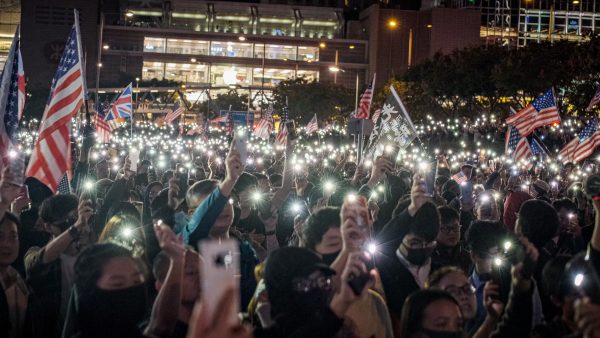Who Should Hong Kong Favor in the US Election? No One.
U.S. President Donald Trump has probably made more speeches and taken more actions on China than any president in American history. His branding as being “tough on China” has attracted a great pool of supporters from anti-China contingents like Hong Kongers and Taiwanese. Those supporters are currently hoping for his reelection.
Debates flared among these communities as they discussed on the two U.S. presidential candidates’ foreign policy, particularly how they will make China “pay its price.” Online campaigns like #hkfortrump began to emerge on social media, endorsing the incumbent president in the name of Hong Kong protesters.
The coronavirus outbreak has awakened nations about the threat posed by China and its dishonesty, which have harmed millions of lives worldwide. Given the formidable bipartisan coalition against the Chinese Communist Party in the United States, mobilizing Hong Kongers’ brand behind a particular candidate in the upcoming election will do more harm than good. Campaigning for a candidate in the name of Hong Kongers will give the impression that Hong Kongers as a whole have picked a side on U.S. domestic issues, undermining bipartisan support from policymakers and the general public on Hong Kong issues.
Hong Kongers’ past success in seeking congressional support rests on two factors. First is the bipartisan recognition that China’s military expansion and espionage activities severely threaten U.S. national interests. Beijing’s repression of human rights in Xinjiang, Tibet , and Hong Kong grossly violates U.S. values. These acts have convinced policymakers that the CCP’s threat is imminent and a top priority to address.
Diplomat Brief Weekly Newsletter N Get briefed on the story of the week, and developing stories to watch across the Asia-Pacific. Get the Newsletter
Second, Hong Kong protesters have been portrayed as fighters for universal values. We align ourselves with fundamental freedoms and rights that go beyond partisan politics, not with a particular political party. And both Republicans and Democrats have equal stakes in the success of Hong Kong’s democratization.
Enjoying this article? Click here to subscribe for full access. Just $5 a month.
As a result, Hong Kong issues have largely maintained robust bipartisan support in Congress. Advocacy groups for Hong Kong protesters have established communications with policymakers from both the Republican and Democratic parties. The Hong Kong Human Rights and Democracy Act last year and the recent Hong Kong People’s Freedom and Choice Act are backed by congressional members of both parties.
Given the polarized political climate in the United States, supporting one candidate over another will likely align Hong Kongers with one party and damage ties with the other, turning Hong Kong into a political bargaining chip between the two. This will make it harder to pass policies beneficial to Hong Kong’s democratic movement. Worse, aggressive promotion of any candidate might even be mistaken for a disinformation campaign, damaging the credibility of the community.
In this election year, the China issue has been politicized to varying degrees. That has slowed down the United States’ work on holding China accountable for the pandemic and its human rights assaults. By championing either side, Hong Kongers will further drive a wedge between the two parties. Doing so will exacerbate the internal turmoil and distract politicians from addressing the more urgent issue: China.
To harness as much support as possible, Hong Kongers must be sensitive to U.S. domestic politics. We should understand that not everyone casts their votes based on the candidates’ posture toward China alone; voters take into consideration their entire political agenda and how they would serve U.S. national interests. Instead of imposing our views of what the United States should do, Hong Kongers have to adopt a more nuanced and understanding attitude about what is at stake.
Of course, everyone is entitled to their own opinions and should take a stance regardless of whether they get to vote. But one should not claim to represent the whole of Hong Kong when expressing political views, as this will put the bipartisanship on Hong Kong issues at risk.
And the crucial fact is, regardless of who wins the U.S. presidency, Hong Kongers must continue advocacy both within and outside of the United States. We must understand that rooting for a candidate on behalf of Hong Kongers will sever our ties with policymakers on the Hill and damage Hong Kongers’ international image as fighters for universal values. We have to show our willingness to work with whoever becomes the president and carry on with our advocacy for Hong Kong.
The author acknowledges Brian Kot for his assistance in this piece.
Frances Hui is the founding director of We The Hongkongers, an organization that promotes the culture and identity of Hong Kongers in the U.S. Previously a journalist, her work has been featured by international media, such as The New York Times, Washington Post, and NBC.













